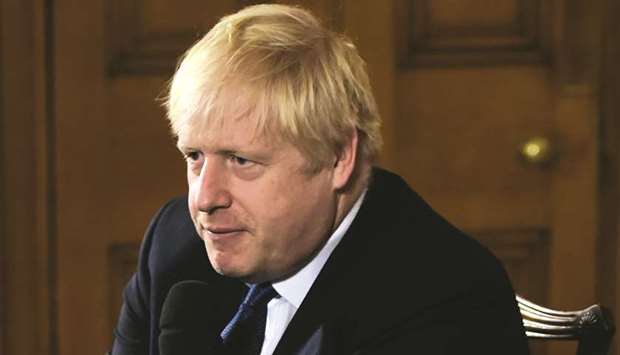Having backed Britain’s proposed high-speed railway HS2, Boris Johnson is under pressure to keep his pledge to scrap plans for a third runway at London Heathrow airport as climate fears intensify.
Prime Minister Johnson, who wants big infrastructure projects to help drive Britain’s post-Brexit economy, said earlier this month that the country would shortly begin full construction work on HS2, dismissing soaring costs.
The project, while quickening train journeys between London in southeast England and major cities in the north, will also free up capacity on existing lines and aims to help rebalance the UK economy.
While construction of the HS2 line is set to produce vast amounts of carbon emissions and destroy ancient woodlands and wildlife, according to experts, its electric trains are set to be far more environmentally friendly than planes making similar trips.
Johnson’s predecessor Theresa May in 2018 approved a new runway at Heathrow, Europe’s busiest airport, three years after Johnson had promised to “lie down in front of...bulldozers and stop the construction”, citing environmental as well as aesthetic concerns.
Her government argued that the project would provide a major boost to Britain’s economy, creating for example up to 114,000 local jobs by 2030.
With Johnson now prime minister, an MP from the small Liberal Democrat party recently asked the Conservative leader if he would carry through with his 2015 bulldozer promise.
Johnson appeared to sit on the fence with his answer regarding the runway, which unlike HS2, will be funded almost entirely privately.
Replying to the question by Liberal MP Munira Wilson, Johnson told parliament that he had “seen no bulldozers at present nor any immediate prospect of them arriving”.
To allay environmental concerns, Heathrow last year said it planned to reroute rivers and roads as part of the construction work.
And on Thursday, it added that it hopes all the airport’s buildings and infrastructure will be zero carbon by around 2035.
Building of the runway is expected to start in 2022 and take four years.
New terminals will not be ready however until around 2050, when the government hopes the country will have a net-zero carbon emissions economy.
Regarding the runway’s construction, Johnson “will continue to prevaricate and put obstacles to progress in the way...before zero emissions are a reality”, independent aviation analyst Howard Wheeldon said.
A decision to scrap the project could be made easier for Johnson, however, thanks to legal action by clear opponents of the project.
One case has been brought by a team including Greenpeace, local London councils and the capital’s mayor Sadiq Khan.
They are appealing against a high court loss last May.
The new verdict is expected shortly.

Boris Johnson (file picture)
